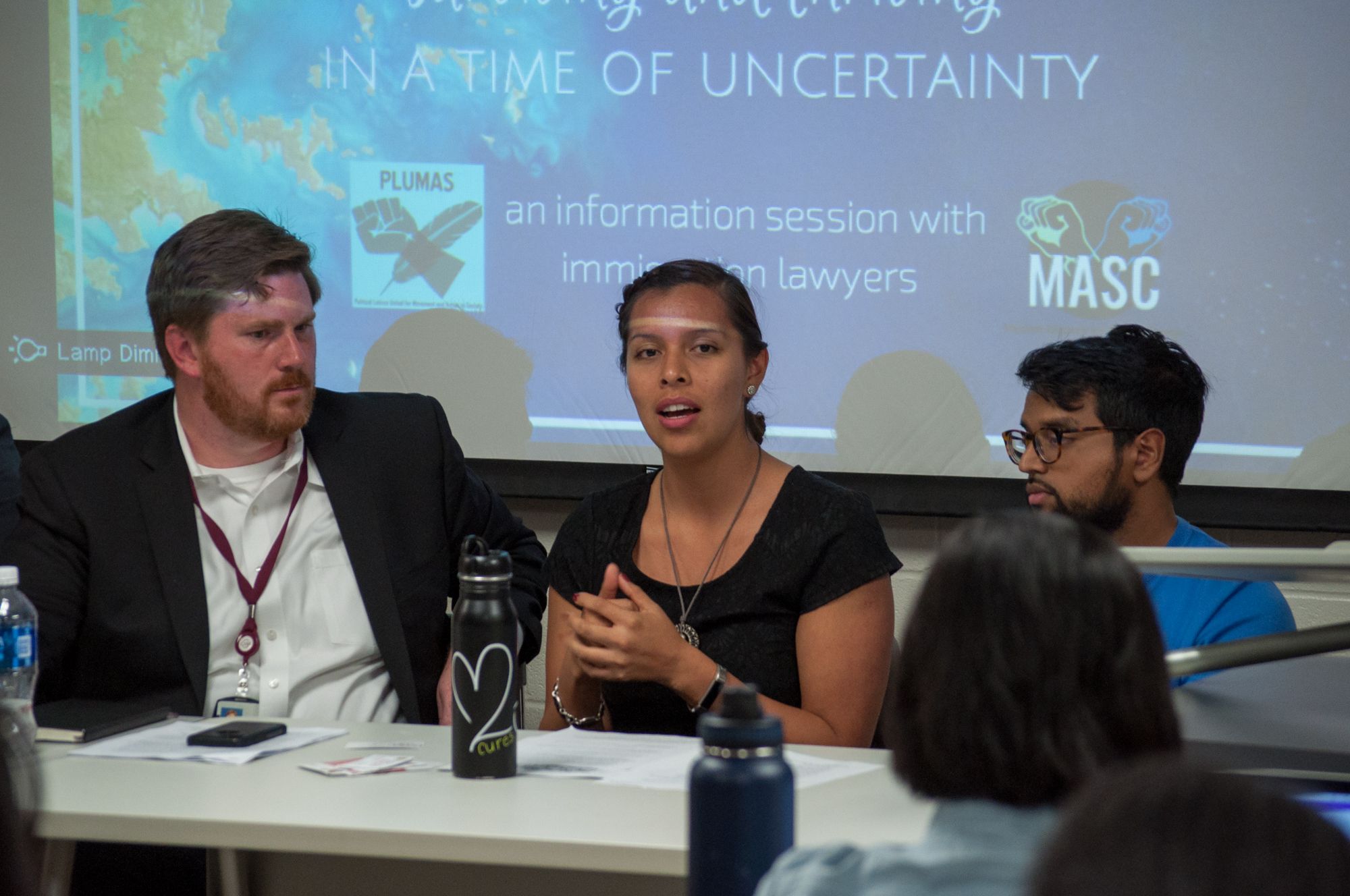The University of Maryland has extended its undocumented student coordinator position to June of next year — but advocates are still pushing for the role to become permanent.
Following President Donald Trump’s election in 2016, a coalition of student activist groups known as ProtectUMD issued 64 demands, including the hiring of an undocumented student coordinator. The role is intended to provide financial guidance, emotional support and other assistance to the undocumented student population.
Laura Bohorquez Garcia has held the position since fall 2017. Her contract was initially set to expire this year — something student activists had expressed concern about — but administrators decided last semester to extend the job until June 2020.
When the post was created in spring 2017, this university saw an unpredictable national context that “was driving a lot of the distress” from students, said student affairs assistant vice president Warren Kelley.
[Read more: “My intention is to stay here”: A UMD student shares her struggles as a DACA recipient]
As a candidate, Trump took a hardline stance on illegal immigration. In August 2015, he said he would rescind DACA — the Obama-era policy that provided work permits to some undocumented immigrants who came to the country as children — if elected president, telling NBC News that “they have to go.”
“We didn’t know where that was going to go or how it would resolve or change. And so part of this was just, let’s continue with this temporary position as long as we see a need and the situation stays volatile and unpredictable,” Kelley said. “Well, fast forward two years … it was still as volatile as ever.”
Since Trump’s election, he’s announced he would rescind DACA, a decision that’s been held by the courts pending further legal review. The White House has also canceled Temporary Protected Status — a short-term designation for immigrants affected by armed conflict or natural disasters — for some groups, including Salvadorans and Haitians.
The contract extension is aimed to give the campus community “breathing room” for the coordinator to continue her work, carry on with meetings of the undocumented student working group and further examine campus needs, Kelley said.
But, as Political Latinxs United for Movement and Action in Society president Blanca Arriola Palma noted, the challenges facing undocumented students will persist beyond the June 2020 cutoff.
“That’s not the deadline for students and employees on campus to not have any more immigration-status related issues that affect their life and that they’re going to need this resource for,” she said. “It’s not like, after that one-year extension, all of this is going to end.”
[Read more: Students are calling on UMD to divest from its contract with ICE]
The Office of Student Affairs and Stamp Student Union chose not to make the position permanent because they have yet to find permanent funding for it, Kelley wrote in an email.
When Bohorquez Garcia first found out about the extension, she was confused about how the additional time could help her plan for the current semester, what support and funding for the position would look like and how she would share the news with students.
“How do we give them next steps?” she asked. “How do I have next steps? How do I plan for programs? How do I plan for resources?”
She also has to weigh whether it would make sense for her personally to continue in the role for an additional year, since benefits for contract positions are more expensive than they are for permanent employees.
“If it was solely based on the work that I do, and who I get to work with, and the relationship-building across units, I think I would be more inclined to say yes right away,” she said.
She did not feel comfortable saying whether she plans to continue in the role.
The university is currently searching for a “permanent home” for the position, said Donna Lim, an associate director in Stamp. Steps to get there include making a plan for long-term funding, and determining whether it should remain in Stamp or move to another office.
Kelley set an April 15 deadline for assessing the best office for the position, a goal he thinks the university is “on track with,” he wrote in an email Sunday.
At a Student Government Association meeting earlier this month, students in PLUMAS, as well as others who said they’ve benefitted from Bohorquez Garcia’s guidance, spoke about why the position should be here to stay. The SGA voted to support making the role a permanent fixture at this university.
This week, PLUMAS plans to reach out the Division of Student Affairs, the Office of Diversity and Inclusion and the Office of Undergraduate Studies, among others, to explain the coordinator’s importance to each office, said Arriola Palma.
The group also plans to encourage administrators to hold an open forum with students who use the position, she added.
“We don’t want this position to continue on the loop of it having to be renewed based on contracts of one year or two,” said Arriola Palma, a senior government and politics major. “This is a permanent resource that needs to be on campus.”



